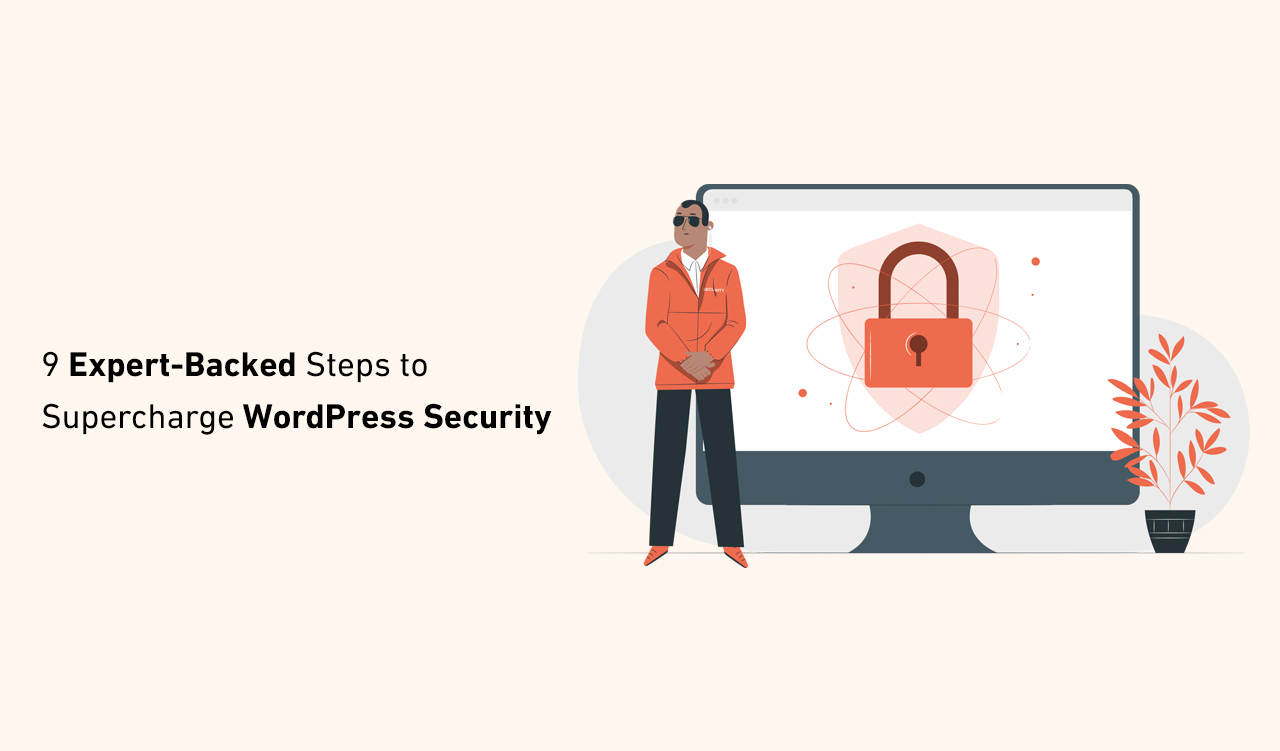Guarding your website is important to secure Your Data, Clients, and Reputation in the Digital Realm.
Thankfully, WordPress users have access to a plethora of features and plugins that offer swift and effortless website security. Follow this concise 9-step checklist to fortify your WordPress site and steer clear of blacklisting or cyberattacks.
“WordPress Site Security: Shielding Your Business Against Cyber Threats”
The security of your WordPress site is critical in today’s cyber landscape. With cybercriminals continuously searching for vulnerabilities, an unprotected website can be an easy target.
If your site falls prey to a cyberattack, it can tarnish your reputation, erode clients’ trust, and diminish your revenue streams. Here are just a few of the catastrophic outcomes that can arise from an insecure website:
- Customers can be left frustrated and dissatisfied if a cyberattack takes your site offline or renders it inaccessible, leading to missed sales and conversions.
- Hackers can obtain sensitive customer data like passwords and bank details, leading to fraudulent activity that harms your clients and damages your reputation.
- Your domain could be marked as spam if your hosting account is used to send phishing emails, hurting your brand and future marketing efforts.
- Google blacklists thousands of sites daily, and if your site is blacklisted, it could take months to recover your previous rankings and search traffic.
Secure Your WordPress Site: A 9 Steps Journey to Keep It Secure
The repercussions of a website cyberattack can be dire, ranging from customer distrust to financial losses and potential legal ramifications. With cybercrime on the rise, it’s crucial to take immediate action. Implementing a comprehensive range of security measures is imperative to protect your business, employees, and valued customers.
Discover nine actionable steps to bolster WordPress security, encompassing everything from SSL certificate installation to regular software updates.
1. Choose a strong password
The majority of cyberattacks occur when passwords are cracked, giving hackers access to her website’s backend and WordPress dashboard.
Such attacks often occur because passwords are too weak. All passwords, both business and personal, should be reviewed to ensure they are sufficiently secure. It cannot contain common words, but use numbers and special characters instead. To save you time, browsers like Google Chrome can generate strong passwords.
Be sure to keep your password in a safe place and protect it with a password. Additionally, it is important to have password procedures in place to ensure that employees are doing their part to protect sensitive data.
2. Protect yourself from brute force attacks
Brute Her Force attacks involve hackers guessing or cracking credentials to gain access to a website or area of a network. This is achieved through sophisticated software that can generate millions of login combinations to enforce access.
A successful brute force attack can result in a data breach, spreading malware on your network and on the devices of your website visitors, rendering your website inaccessible for some time.
Besides using strong passwords, you can also use the WordPress Brute Force Protection plugin to limit login attempts from unknown devices.
3. Install an SSL certificate
An SSL certificate encrypts her website data, providing security and privacy to her visitors. SSL not only provides security for your visitors, it also enhances your website’s SEO. Search engines such as Google attach great importance to standard security techniques when ranking websites.
4. Check regularly for malware
If a hacker installs malware on her website, it could cause serious damage to her business. In some cases, this damage can become irreparable. Malware can give cybercriminals access to sensitive data and infect website visitors, causing a massive domino effect.
Wordfence Security is a plugin you should consider to protect your website from malware attacks.
5. Don’t ignore updates
Failure to update your WordPress version, installed plugins and themes can be an opportunity for hackers to break in. Updates provide new features and security upgrades for WordPress, but older versions soon become unsupported and introduce vulnerabilities that can be exploited.
6. Secure your website’s database
Website databases are a treasure trove for cybercriminals, and at some point an attempt may be made to break into this treasure trove of valuable information. One of the ways hackers attempt to gain access is through SQL injection attacks, which involve manipulating databases with malicious SQL code.
Outdated software can make your website vulnerable to SQL injection attacks. Therefore regular updates are very important as explained in the previous step. We also recommend installing a reliable firewall plugin for extra protection. For extra security, invest in a quality VPN service that offers advanced data security and encryption to limit the risk of data breaches and unauthorized access to your website or network.
7. Create local and remote backups
A robust backup policy can save your business in the event of a cyberattack. For this reason, daily backups should be stored both locally and remotely to double the chances of maintaining access to your data.
For quick and easy remote backup capabilities, consider an external dedicated server or cloud solution.
8. Get real-time monitoring
Real-time monitoring solutions continuously check your website for issues such as downtime, website hacks, and traffic spikes. This allows the website owner to stay informed on the status of her website and to immediately address any issues that arise.
9. Block IP Addresses
An effective way to reduce the potential for cyberattacks is to block IP addresses from specific geographic locations. A plugin like IP Location Block has many features such as: B. Zero-day exploit prevention that tracks vulnerability patterns and reduces the attack surface of your WordPress website.
Conclusion
It cannot be overemphasized how important website security is. In extreme cases, a breach can cause long-term damage or destroy your business. Cyberattacks not only impact your business, they can also have a significant impact on your customers.
Luckily, securing your website isn’t particularly difficult thanks to a variety of smart WordPress plugins, good practices, and additional security with technologies like SSL certificates and VPNs.


